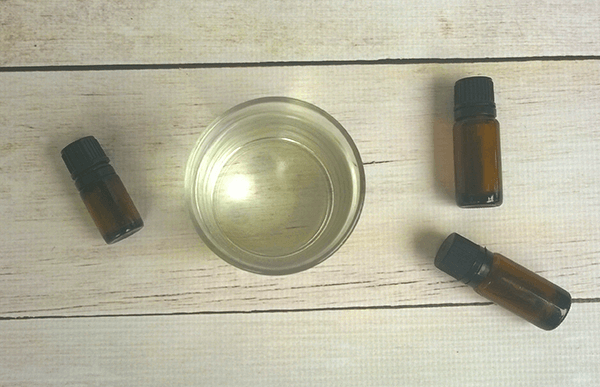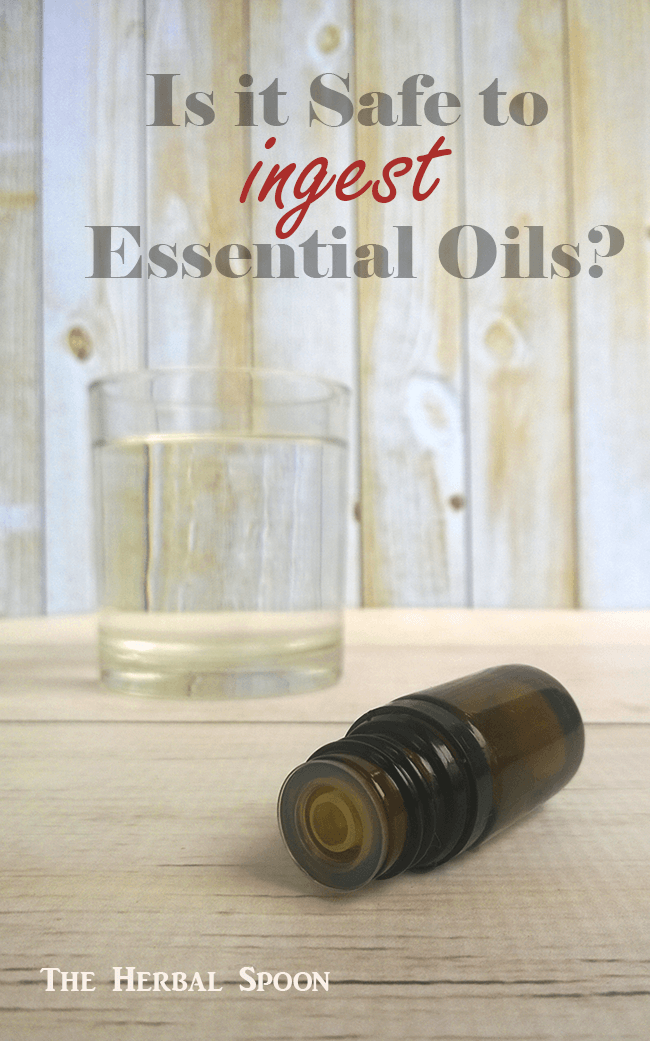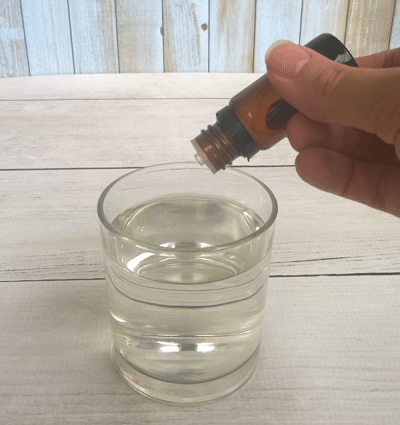This controversy has been raging ever since the battle between certain essential oil companies and traditionally trained aromatherapists began. There are strong arguments and opinions on both sides of the aisle, but who is right on this one? I don’t claim to know everything on the issue, but as an herbalist who has since branched into aromatology and aromatherapy, I’d like to give this issue some attention. Is it safe, or is it dangerous to ingest essential oils?
Myth busting
First I’d like to begin with some common ingestion myths. As with anything there is a proper balance. Extremes on either end can be harmful.
1. Essential oils should never be consumed under any circumstance.
I guarantee you’ve consumed essential oils to some degree in your life time. Ever had a breath mint? Altoids and other brands list “oil of peppermint” on the ingredients list. If you’ve ever brushed your teeth with a natural toothpaste, most likely it contained essential oils for flavoring. This brand of fermented cod liver oil is widely touted (and now controversial) in WAPF circles, and it’s flavored with essential oils. Essential oils have been used to flavor food, especially natural foods, for many years.
2. Essential oils should only be consumed under the guidance of an aromatherapist.
Aromatherapists typically have only a few hundred hours of essential oil training. This traditional approach focuses on inhalation and diluted topical applications. Unless they’ve also specifically studied the internal use of oils, they’re no more qualified than you are to make these decisions.
One thing I’ve found through my studies in the Vintage Remedies program, is that traditional aromatherapy isn’t necessarily based on current scientific evidence, but rather traditional use. This isn’t to discredit the knowledge an aromatherapist has, but sometimes their guidelines contradict what the current body of scientific literature has shown to be safe.
3. Essential oils can kill you when ingested.
This one is actually true (sort of). There have been cases when people died from ingesting essential oils. One example is Eucalyptus essential oil. There have been seizures, comas and even deaths reported with this oil. Having read that, you’re probably assuming that Eucalyptus essential oil should never be ingested since it’s so harmful.
What you probably don’t know, is that Eucalyptus is widely available in Australia, and people have drank entire bottles to try and commit suicide. In one case, someone drank 50ml, which is over 1.5 ounces and they still survived the suicide attempt. This is way more than the recommended and safe 1-2 drops.
4. Essential oils are safe to ingest if they’re labeled “therapeutic grade.”
Therapeutic grade is simply a marketing term. Phrases like “100% pure” and “all natural” also have no credible meaning unless the company is able to provide evidence to back up their claim. Pick up an essential oil at your local health food store and chances are it will specifically tell you it’s not for ingestion, despite the fact that it’s probably labeled “therapeutic.”
For an essential oil to be pure enough to ingest, you want an oil without fillers, contamination or pesticides and one that has been 3rd party tested. Anyone can declare their product is “pure,” which is why the 3rd party testing is vital to confirm safety.
5. Instead of ingesting essential oils, just ingest the whole herb.
Essential oils are contained in the whole herb. Every time you make yourself a cup of herbal tea, or a homemade cough syrup, you’re consuming essential oils. This isn’t the same as dumping three drops in your morning beverage, but they are present in small amounts just the same. I personally use both the whole herb and essential oils. Since the isolated essential oils are much more potent, you’ll naturally need a fraction of the amount compared to the whole herb.
One good example is ginger. Both ginger tea and the essential oil have been used to soothe upset stomachs, however the active component is found in the essential oil. So it’s actually more effective to consume the oil.
How to safely consume essential oils
Diluting essential oils for consumption
Essential oils should be thoroughly mixed with another substance like honey, sugar or oil before consuming. This ensures that you’re getting a diluted amount and that the essential oil isn’t directly hitting your mucus membranes when swallowed.
I’ll put a couple of drops in a pot of my morning superfood latte. No I don’t drink the whole pot myself…well, not usually. You can add a couple of drops to homemade ice cream or popsicles. I’ll even make lavender lemonade with my essential oils. The key here is that it’s a small amount and it’s fully distributed throughout the food.
Wellness support
This is where it gets a little more controversial. There are recommendations out there to put 10 drops of potent oils like oregano and cinnamon in a capsule. I have to agree with the traditional users on this one though. High amounts of essential oil like this are generally unnecessary and can cause damage.
Common medications like Tylenol are actually much riskier than essential oil ingestion. “acetaminophen overdose results in over 56,000 injuries, 2,500 hospitalizations, and an estimated 450 deaths per year.” (source) It’s very easy to overdose with OTC and prescription medications, but you have a much wider safety net with plant based solutions.
How to safely ingest oils
That being said, I do ingest essential oils in small amounts on occasion to keep my body healthy. It’s important to use common sense when diluting. 1-2 drops is generally the recommended amount. I like to put 1-2 drops in a capsule and fill to the top with olive oil. I’ll also put diluted essential oils under my tongue, since this gets it right into the bloodstream.
For children, essential oils generally make up .5-1% of the total product. This will not only be effective, but it’s a tiny fraction of an amount that can cause an adverse event. In this double blind, placebo controlled, randomized study, several hundred children as young as 1 were safely given essential oils, including citrus oils diluted in honey to support throat health. This resulted in zero breathing issues or complications. With that being said though, I highly recommend getting some aromatology training before giving any essential oils internally to children.
How I DON’T ingest oils
I’ve already mentioned that I avoid large amounts. I also don’t put oils in my water. Even though thousands of people have done so without apparent incident, they can cause mucus membrane irritation. The only cases I know of are anecdotal however, and involve repeated, undiluted use of oils, typically “hot” oils, like cinnamon.
You also never want to ingest low quality oils. If they’ve been sprayed with pesticides, bought off of the open market in who knows what kind of condition, or other negative factors, then they shouldn’t be going in your mouth. It took me a long time to decide which oils I wanted to use and felt safe using with my family. You can connect with me HERE and I’ll share with you which brand I love, has the highest quality and the best prices.
Who do you trust for safe essential oil information?
There’s so much bad information out there when it comes to using essential oils. How do you sift through it all to make sure you’re helping yourself and your family the best you can? I took an aromatology course from Vintage Remedies that covers the basics of internal essential oil use, but its since been discontinued.
The New York Institute of Aromatherapy is certified by the National Association of Holistic Aromatherapists (NAHA) and offers a course in the French (or internal) use of essential oils. Not many quality aromatherapy schools are teaching this information, and most just say to never ingest essential oils. I’ve taken an introductory course from this school, but I’ve had my eye on their internal usage course!
You can learn more about the New York Institute of Aromatherapy’s French Aromatherapy (internal use) here.
Who do you turn to for essential oil information? – Comment below!
Resources:
Vintage Remedies Aromatic Medicine



I’ve read a few different articles on this subject, and tried ingesting vs. not ingesting on my own. I still don’t know where I stand, but I guess it’s good to always be open to new info. Thanks so much for sharing this at Savoring Saturdays – I really do think it’s a very important topic that most people probably don’t think through.
I love this article – finally someone speaks the truth and finds a middle ground in all the madness that is out there. Aromatherapists are scare mongering people into not using oils as much as they can. Even worse they are telling them to buy low quality fake oils in some cases because they never actually looked into the quality at all. People believe them because they are certified- Check out the recent scandal with Lea Harris (Self Proclaimed EO Safety Expert) and the new line of oils she was consulting on and recommending to all of her followers on Facebook. It turns out she never bothered to even check their basic quality tests before joining them and promoting their line. All she does is try to discredit MLM brands who actually do go to the greatest lengths to test their oils for purity. This is exactly what is wrong with blindly trusting a person because they have an Aromatherapy certification and they fill you with fear about other brands that they compete with who are better. I also think we need to tighten up on what the MLM’s are telling people in terms of safety but we are getting there. If more articles like this were written and good courses like the one you mentioned people might actually get to the bottom of what is actually true about how to use oils in the best way for their health!!!!!!!!!!!!!!!!!! Thank you 🙂
Thanks for your comment Linda! I agree that there should be an evidence based middle ground here so that safety and efficiency can meet. Lea Harris is a certified aromatherapist, however her training isn’t as evidence based as I’d like and she’s even more conservative than most aromatherapists. I’m aware that she started consulting for edens garden and a new brand. I’ve had issues with Edens garden in quality before so I stopped buying from them. I really like the integrity and purity of the company I’m buying from now though.
Linda – Where can I learn about this Lea Harris scandal?? I just recommended her website to a pregnant friend!! AND sent a link to her brand opinions article to my Chiropractor!! (A google search yielded nothing.)
And Jamie – LOVE this article. The link to contact you about your personal eo opinions is broken but I am interested.
You can email me using this form here. I just updated the link in the article too, sorry about that! I believe her name is Lea Jacobson now. There are a few aromatherapy and essential oil facebook groups a lot of professionals hang out in and I’ve seen it discussed there. The Franklin Institute of Wellness has solid, evidence based information and I would recommend that over the Using Essential Oils Safely group. https://www.facebook.com/groups/105821296435059/
I also like the books by Shirley and Penny Price. This one on using essential oils with babies and children is good, just ignore the one mention of using oils to flavor water. I believe that’s not in the 2nd edition, however the 2nd edition is very hard to find.
https://www.amazon.com/Aromatherapy-Babies-Children-Shirley-Price/dp/0722531079/ref=as_li_ss_tl?crid=1YK6460KI1KR5&keywords=shirley+price+aromatherapy&qid=1578370404&sprefix=shirley+price+,aps,152&sr=8-12&&linkCode=ll1&tag=hotojuaban-20&linkId=de11ddc6d740d9496f1953fda75a08c1&language=en_US
This is a fantastic article. You have made some great points.
May I refer my clients to this article in my email newsletter?
Thanks!
Of course 🙂 Link backs to the article are always welcome, just as long as the article itself isn’t republished.